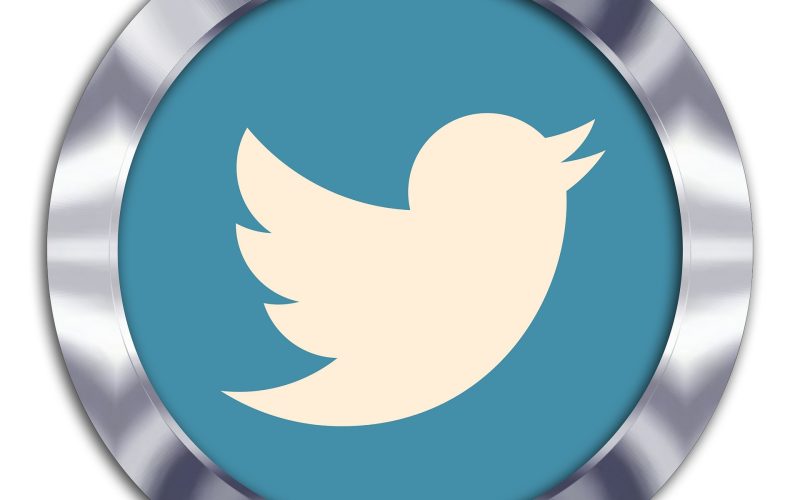decision to remove state-controlled media labels raises concerns about
Twitter’s recent decision to remove state-controlled media labels has sparked concerns about the future of journalism, media freedom and diversity. This move affects not only Twitter users, but also the entire media industry as a whole. With propaganda being increasingly prevalent online, the removal of these labels begs the question: what are the implications for media pluralism? In this blog post, we will explore these concerns in depth and examine how this decision could impact journalism and society as a whole.
Decision to remove state-controlled media labels raises concerns about
The decision to remove state-controlled media labels on Twitter has raised concerns about the credibility of information shared online. By doing so, there is a risk that propaganda and misinformation could spread more easily, without the necessary context for users to distinguish between different sources of news.
Journalists have voiced their concern about this move as it may make it harder for them to identify disinformation campaigns run by foreign governments or other entities with vested interests in shaping public opinion. It also puts pressure on individual users to take extra steps and do their own research before believing everything they read online.
The impact of this decision extends beyond just Twitter – other social media platforms may follow suit in removing these labels, which would further compound the problem. This move could ultimately lead to a lack of transparency and accountability in journalism, making it even harder for citizens to trust what they see or hear from any source.
While Twitter’s decision may seem like a small change at first glance, its implications are significant. The removal of state-controlled media labels raises important concerns about how we consume news today and underscores the need for greater transparency and accountability from all parties involved in shaping public opinion.
The future of journalism in the country
The decision to remove state-controlled media labels on Twitter has raised serious concerns about the future of journalism in the country. In a world where information is abundant, it’s more important than ever for people to have access to unbiased and diverse news sources.
Without clear labeling, users may be unable to distinguish between independent journalism and propaganda. This could result in an erosion of trust in news outlets as well as a decrease in media pluralism.
The removal of these labels also threatens the work of journalists who strive to uphold journalistic standards and ethics. Without proper identification of state-controlled media, their stories may be drowned out by misinformation or disinformation campaigns masquerading as legitimate news.
Furthermore, this move could lead to further restrictions on press freedom and hinder investigative reporting. It’s essential that we maintain transparency within our media systems so that citizens can make informed decisions based on accurate information.
It’s crucial for social media platforms like Twitter to prioritize transparency and accuracy when it comes to identifying state-controlled media outlets. The future of journalism relies on unfettered access to trustworthy sources, free from external influence or manipulation.
The impact on media freedom and diversity
The decision to remove state-controlled media labels on Twitter has raised concerns about the impact on media freedom and diversity. The lack of transparency could lead to a reduction in trust for all media outlets, including independent ones. This is especially concerning because the public relies heavily on social media platforms for news and information.
Media freedom is a cornerstone of democratic societies, as it allows citizens access to diverse viewpoints and opinions. State-controlled media often promote an agenda that serves the interests of those in power rather than providing objective reporting. Removing labels identifying these sources makes it difficult for readers to differentiate between unbiased journalism and propaganda.
Diversity among news sources plays an essential role in preventing powerful interests from dominating the conversation with their own narrative. A range of perspectives ensures that people can make informed decisions based on multiple viewpoints instead of only hearing one side.
Removing state-controlled media labels may have significant implications for both media freedom and diversity. It’s crucial that social networks continue to prioritize transparency so that users can distinguish reliable sources from propaganda-driven content.
The possible implications for media pluralism
Media pluralism is an essential component of any healthy democracy. It refers to the diversity of media outlets and their ownership structures, which allows for a variety of voices and perspectives to be heard. When state-controlled media labels are removed, it raises concerns about the possible implications for media pluralism.
One potential implication is that without clear labeling, audiences may not be able to distinguish between independent news sources and those with state influence or propaganda agendas. This could lead to a lack of trust in all news sources and further polarization among different segments of society.
Another concern is that without proper labeling, state-controlled media could dominate the market and drown out independent voices. This would limit access to diverse viewpoints and create a monopoly on information dissemination.
In addition, removing these labels could also have an impact on advertising revenue for independent outlets. Advertisers may choose to support state-controlled media instead due to their larger reach, leaving small independent outlets struggling financially.
There are many potential implications for media pluralism when state-controlled media labels are removed. It’s important for individuals and organizations alike to continue advocating for transparency in journalism so that audiences can make informed decisions about where they get their news from.
Conclusion
The decision to remove state-controlled media labels on Twitter has raised several concerns about the future of journalism in many countries. While it may seem like a small change, its implications for media freedom and diversity cannot be overlooked. As social media platforms continue to grow in power and influence, they must take responsibility for ensuring that their users have access to accurate information from diverse sources.
Twitter’s move has highlighted the importance of maintaining media pluralism in our societies. It is crucial to have a range of voices and perspectives represented in our newsfeeds so that we can make informed decisions as citizens. The removal of these labels could lead to an erosion of trust between journalists and their audiences, making it easier for propaganda and misinformation to spread unchecked.
Going forward, it will be essential for social media companies like Twitter to find ways to promote transparency while also protecting free speech. This includes developing more sophisticated algorithms that can detect state-sponsored content without stifling legitimate debate or dissenting voices.
Ultimately, the fate of journalism rests not just with traditional news outlets but also with online platforms like Twitter who are shaping how we consume information today. By working together towards a more transparent and diverse media landscape, we can ensure that democracy remains strong well into the future.












